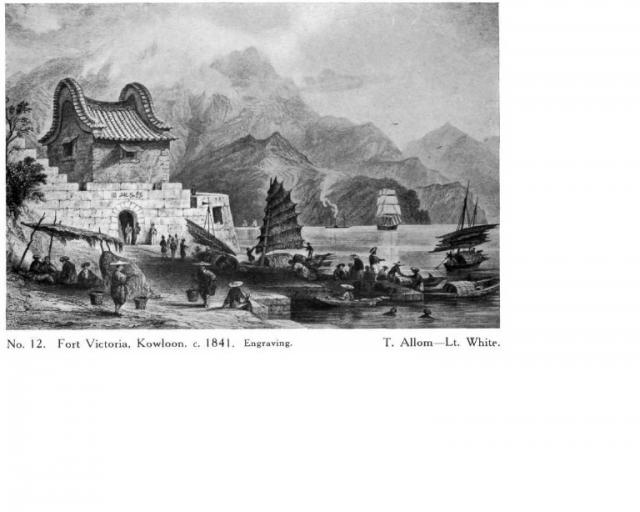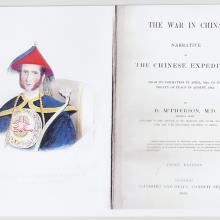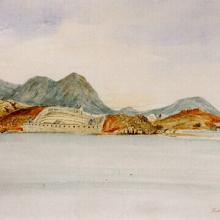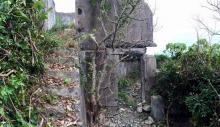Illustration from Allom's China
A picturesque view of the Fort occupied by the British on Kowloon, looking towards the Peak. The position is marked on the Royal Panorama Sheet, cf. No. 15, and is marked * No. 49, Original Chinese Fort, called by the English, Fort Victoria The letterpress to the plate says:—
" Our new possession, Hong-Kong, is separated from the mainland by a strait not more than half-a-mile in width in some places, but in others extending to five. The Peninsula of Kow-loon forms the opposite shore j and on its extreme point, and directly commanding the entrance to the English town, which has grown up there with almost miraculous rapidity, stood two Chinese forts. As the bay of Hong-Kong is one of the most admirable in the Eastern seas, it is an object of the utmost consequence that it shall be protected from the treachery of the Chinese. . . . . .
On the arrival of our expedition in these waters, the fleet procured supplies at Kow-loon where they found an active trade, but to a small extent, conducted by the natives. After the first compact into which we entered with these 'treaty-breakers" it was agreed that the peninsula of Kowloon should be considered neutral ground, and that the two batteries which stood there should be dismantled, to remove all apprehension on our part. Idolaters have been known to observe their engagements, and respect their character, but the species of worship which the Chinese embrace is so base and senseless, that genius and dishonesty are, in their tongue, synonymous terms—faith and falsehood valued only in proportion to the success of the observer. The tenure of their friendship must inevitably be precarious— the enjoyment of their alliance an unenviable possession. However, to their promises we trusted, and, leaving Kow-loon in their custody, believed ourselves secure from insult or aggression at Hong-kong.
"Scarcely had we indulged in a cessation from active war, when the imperial government expressed its total disregard for treaties, especially with Barbarians, and without hesitation resumed an aggressive attitude. This iniquitous measure decided the question of occupancy at Kow-loon; and, instead of the old battery, whose useless and time-worn artillery was quite in character with their dastardly artillery-men, a re-edification, but in the Chinese architectural manner, has taken place; and a stout fortress, manned by brave, British military, has succeeded, known by the appropriate, and now ever memorable name in China, of Fort Victoria
' Engraving. 5 x 7^. Drawn by T. Allom (1804-1872), from a sketch on the spot by Lieut. White, Royal Marines. Engraved by M. J. Starling.
Published by Fisher, Son & Co., London and Paris.




